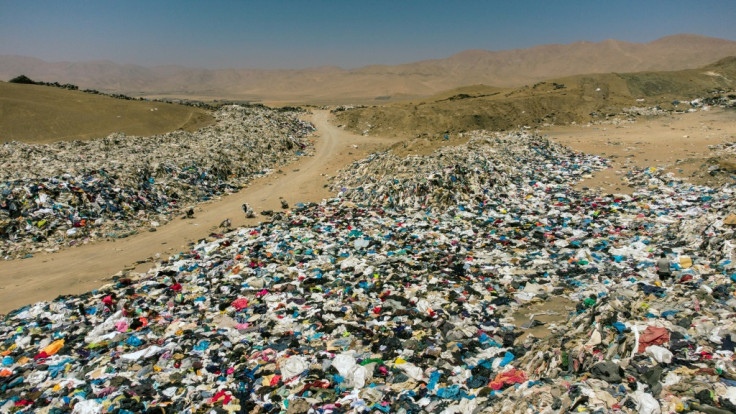Shein And Temu Are Dominating The Global Air Cargo Industry Despite Climate Crisis
China's e-commerce giants Shein and Temu account for almost 10,000 tonnes of garments being shipped overseas, despite fast-fashion and factory worker controversies.

In recent years, there has been an influx of online fast-fashion retailers, including Shein and Temu.
According to more than 10 fast-fashion industry sources, the polluting e-commerce brands have upended the global air cargo industry, increasingly using limited air cargo space to attract more consumers with rapid transit and delivery times.
An investigation, which sourced the fast-fashion brand garments from factories in China, found that Shein, PDD Group's Temu and ByteDance's TikTok Shop, used flights to transport the majority of their products directly from China to international shoppers.
An undercover investigation, conducted by the UK's Channel 4 and The i newspaper in 2022, found that Shein paid its workers a base salary of just 4,000 yuan per month – equivalent to around £445 a month.
The company was not only exposed for its extremely low wages, which saw factory workers getting paid around £15 each day but it was also criticised for implementing extremely long working hours.
"There's no such thing as Sundays here," said one factory worker who appeared in the documentary.
A June 2023 report, conducted by the US Congress, exposed how the growing popularity around fast fashion, is boosting air freight costs from Asian hubs like Guangzhou and Hong Kong.
Off-peak seasons have almost disappeared, the US source said, adding that the increase in air freight prices has also caused capacity shortages.
With Shein and Temu dominating the fast-fashion e-commerce sector and pushing other industries off of air freighters, global firms are scrambling to find alternative logistics options due to the Red Sea disruptions.
"When the Suez Canal (crisis) hit, there was no capacity to be bought, because e-commerce has bought it all," said an Executive at an air cargo carrier, who requested anonymity.
Shein and Temu, together, deliver almost 600,000 packages to the United States every day, the June 2023 report by the US Congress recalled.
Basile Ricard, the Director of Greater China Operations at Bollore Logistics, said: "The biggest trend impacting air freight right now is not the Red Sea, it's Chinese e-commerce companies like Shein or Temu."
According to data verified by Cargo Facts Consulting, every day, Temu ships around 4,000 tonnes of garments overseas.
While Shein leads the way by shipping 5,000 tonnes of fast-fashion products each day, Alibaba.com posts 1,000 tonnes and TikTok Shop, which only launched in the US in September 2023, sends 800 tonnes.
The total sum of shipments equates to around 108 Boeing 777 freighters a day, Cargo Facts Consulting explained.
Declining to comment further, a spokesperson for Shein said: "Shein is continually optimizing its efforts to ensure the best customer experience and fulfilment efficiency."
Despite the current climate crisis dominating news outlets, fast-fashion brands are still favoured amongst consumers.
Driven by increasing demand for their low-priced apparel, including products sold for less than five pounds, Shein accounts for a staggering 20 per cent of the global fast-fashion market - measured by sales analysis.
Shein has fuelled the success of China's e-commerce industry, Coresight Research says.
According to the International Trade Administration, in 2021, China surpassed the US as the largest market for e-commerce.
Studies found that each year, as of 2021, China's e-commerce market generates a huge revenue of $1.5 trillion.
Baixiao.com, the cross-border transportation media firm, in 2024, fast-fashion shipments now account for 50 per cent of China's total cross-border e-commerce deliveries.
The mass amount of shipments also takes up roughly 30 per cent of global long-distance cargo aircraft journeys, Baixiao.com also reported.
"Based on what we have seen, this model of (airborne) e-commerce is not sustainable, neither from a profit or environmental standpoint," Guillermo Ochovo, a Director at Cargo Facts Consulting, said.
© Copyright IBTimes 2025. All rights reserved.






















